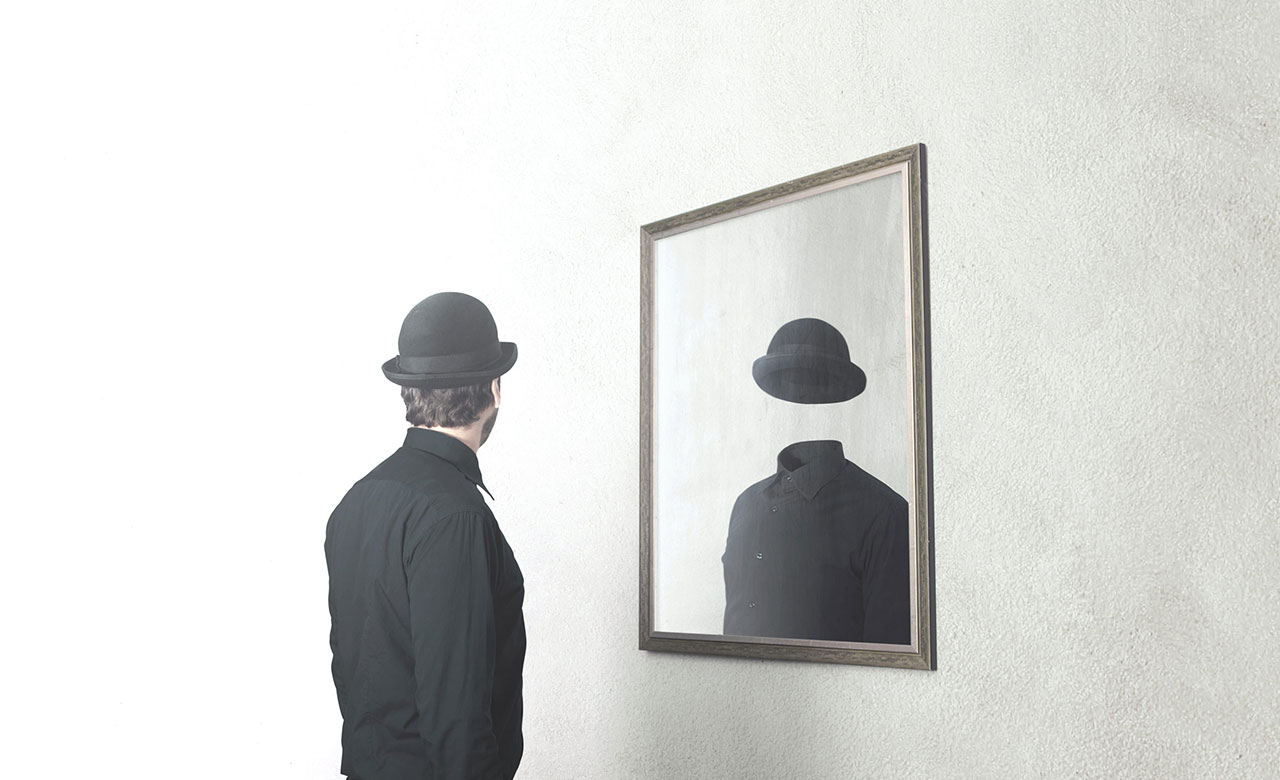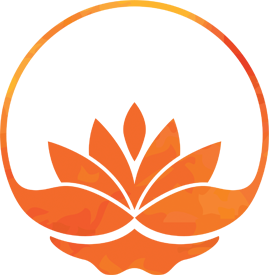
Informative
Obstacles in Knowing Yourself
From where have we come? Why are we here? Where do we want to go from here? To know one true identity takes some serious effort. Most of us spend our entire life without even asking these questions to ourselves. Few of us who ask face a lot of challenges finding these answers. In this blog, we discuss the obstacles we come across while being on the path of knowing ourselves.
What is self-knowledge, and why is it so important?
Sanatana Dharma calls it Atma Jnana, which means knowing our true identity and understanding the relationship between us and the Divine consciousness thoroughly. Greeks called it ‘know thyself.’ Philosophy defines self-knowledge as being fully aware of our thoughts, sensations, surroundings, mental state, beliefs, and emotions.
In modern terms, self-knowledge is the basis of emotional intelligence, where one can be completely aware of his internal state, intuitions, strengths, weaknesses, and preferences. Here, an individual must see himself objectively and with a crystal clear conscience through introspection and reflection.
What are the demerits of not knowing yourself?
Insecurity: when we don’t know ourselves, we always will be insecure. We will always be on the lookout when someone comments on us, our looks, our family, our education, our way of life, our traditions, our way of thinking, our upbringing, and whatever makes us ‘us.’
We always will be anxious and worry, even about the most minor troubles in life. Lack of self-knowledge leads to ever-changing internal values, which are easily influenced by others. When this happens, we constantly find ourselves in the trap of comparing our life with others, especially during this age of social media.
Addictions: Not knowing your strengths leads to low self-esteem. And the low self-sense of worth leads to reckless, compulsive, and addictive behavior.
When we do not know how to face, accept and process our true feelings, it leads to stuffing away the feelings. Pent-up emotions lead to depression and self-loathing, which ultimately results in some kind of addiction.
Failed Relationships: When we don’t know ourselves, we do not have any idea about what we look for in a partner. When we lack self-knowledge, we fail to see what we are projecting on our friends and family. Without owning the traits and emotions we project on others, we become complicated people to deal with.
Even to recognize that the relationship is failing, one needs to have some amount of self-knowledge. Self-knowledge helps us in choosing the right kind of partner, friends, and even co-workers. It breaks the pattern of making acquaintances with the wrong people in our lives.
Profession: The people who are unhappy at their jobs mostly do hate their jobs. When it comes to choosing a career at an early age, most of us are heavily influenced by whoever else is doing, what our parents suggest, or the current trend.
Having an idea about your strengths and weaknesses is a significant part of being self-aware. When we develop self-knowledge, we know what we can do and how we want to spend the rest of our lives.
Spending: We spend our time and money on the things we love. But either being influenced by wrong people or current trends, we tend to waste both money and time on the things we don’t like. Without the knowledge of what we like, we make terrible choices again and again.
Our hard earned money and the time we cannot get back are the commodities we cannot afford to waste on things we don’t like, and hence, it’s essential that with self-knowledge, one must choose wisely before spending these.
Reasons why it’s difficult to know yourself?
Busy life: let’s face it. It’s not an easy process to know yourself or even wonder what you are. We often get so busy with the things which don’t matter; we hardly get time to reflect upon who we are. Self-reflection does not just require silence in the room, but it needs a calm mind, which is hard to find these days.
Lack of consistency: it takes years to realize that we need to know ourselves. When few recognize this, very few percentages among us act upon it and decide to do something about it. And very few of them possess the patience and readiness to sacrifice, to know themselves because it’s a lengthy and tedious process that requires patience and perseverance.
Imitation: Every one of us admires someone. We try to model ourselves after them, completely neglecting that they are not as they seem to be. And when it happens, instead of following their virtues and values, we often end up copying their personalities, forgetting who we are as time passes.
Lack of ideals in society: contrary to the above, often we try to be unique from everyone else. We usually don’t follow anyone just because many are following them, and eventually, in the process of not being the cliché, we often become one.
Lack of true companionship: As we don’t know ourselves, we often tend to hang out with people who lack a real connection with us. In this day and age of social media, it has become tough to find true friends and share our emotions, hopes, dreams, and sorrows.
We often open up in front of wrong people who are not here for the long run, but they are here, with some alternative motives. Good companions honor us and honor what we share with them. They truly know us, accepting what we are. Lack of true companionship is one of the significant flaws in knowing ourselves.
Honesty: There is an old saying which goes like, ‘You can lie to the whole world, but when you start lying to yourself, then you are in big trouble. Knowing thyself is a laborious process. One must be ready to hold a true mirror in front of themselves to acquire self-knowledge. One must be naked, radically, and brutally honest with himself to know himself, and a false sense of self-pride can prohibit them from doing so.
It often might be painful, regretful, or overwhelming to look within. Gaining a third perspective is essential in the whole process, and when we let our judgments, interests, opinions, and emotions take part in the process, it becomes nearly impossible to know ourselves.
Social Mirror: most of the time, we prefer to look at ourselves from the point of view of others. We care about how others perceive us rather than how we perceive ourselves. No matter how you try to convince yourself and others that you do not care about how others think of you, being a social animal, we care to some extent.
But here, we are not implying that you should completely ignore society’s opinions about you. Being completely negligent of society’s view will not do us any good or lead to severe narcissism. When more than a few people say that you are a terrible person, most probably you are, but not ready to accept it. And hence, we must strike a balance between our and society’s perceptions about ourselves.
Distractions: Social media, streaming platforms, online shopping, sports, books, music, sex, alcohol, drugs. Take any. We constantly distract ourselves because being alone with ourselves terrifies us. We continuously keep on distracting ourselves so that we don’t have to be alone with true ourselves.
In this world, where distractions are easy and cheap to come by, the environment makes it very easy to lose ourselves in these. Even though we are getting too much of it, we cannot recognize that we are spiraling down the road of being disconnected from reality. We often forget that becoming aware of our distractions and choosing them wisely is entirely in our hands.
We all have life goals. But happiness is not the goal you can chase. It’s an outcome of living your life on your terms and conditions. Knowing yourself helps you to choose your values, needs, and limitations. We hope this blog helped you to gain some insight on
What are the obstacles to knowing yourself?
To stay connected and to receive information about spirituality, please subscribe to our mailing list. In case of any queries, please write to us at info@chamundaswamiji.com.
Post a Comment
-
Subscribe to Our Blog
-
Categories
-
Popular Articles
- Dead moth in the house. What universe is trying to tell you?
- Vivah Bandhan Curse – What Is It and How to Spiritually Heal It.
- Tripura Sundari | The Dasa Mahavidya
- What are Beej Mantras?
- The Dasa Mahavidyas
- Ramakrishna Paramhansa – The Man who almost became a Woman
- Maa Bhuvaneshwari | The Dasa Mahavidyas
- How does the Moon Affect Us?
- Maa Chinnamasta | The Dasa Mahavidyas
- Maa Bhairavi | The Dasa Mahavidyas



